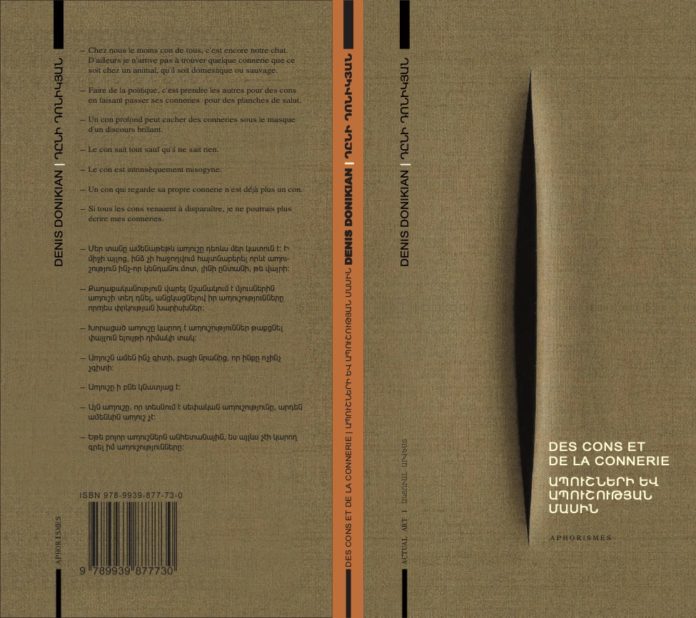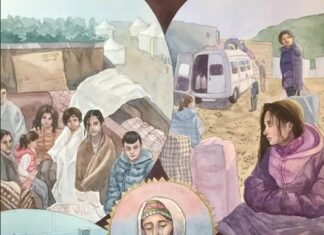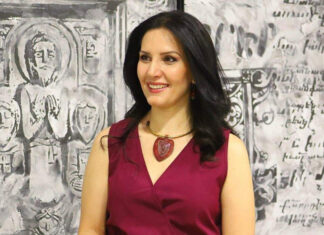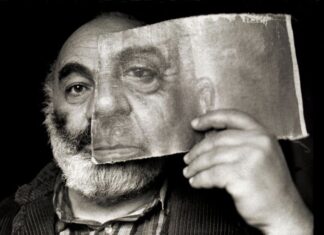For close to 50 years, Denis Donikian has been a voice for the voiceless, a great littérateur and artist, an outspoken critic of corruption and dictatorship wherever he has found them—briefly said, a rare voice among Armenian writers. Born outside of Paris in the city of Vienne to parents who were both survivors of the Genocide, Donikian is the author of more than 40 volumes of poetry, non-fiction and prose. He most recently published La Petite Encyclopédie du Genocide Arménien, a four hundred page book which breaks down the Aghet by topic and theme. The author writes mainly in French and sometimes in Armenian, having attended the Collège de Sèvres as a child and later at Yerevan State University. He studied in Armenia then travelled to and fro, between Armenia, the Ukraine, and Georgia where he met luminaries such as filmmaker Sergei Paradjanov. Everywhere he has gone he has written, taught, created, shared generously of himself.
In typically profuse fashion, Donikian has released three more books this year, beginning with the bilingual L’Esprit du Corps Féminin”/”The Spirit of the Feminine Body, followed by his book of aphorisms Idiots and Idiocy and finally the Eastern Armenian bilingual edition of his stunning poem “Paradjanov’s Horses.”

Donikian, Lover of Women: Celebrating the Female Erotic
Donikian–the poet and the man–has always been an unabashed lover of all things feminine. In a way that comes off as perhaps typically French to some, he simply loves women: their charm, their wit, their style and perhaps especially their bodies. His current ode to all things feminine L’Esprit du Corps Féminin/The Spirit of the Female Body continues in this unique, inimitable vein. In an age of Me Too political correctness and where everyone now seems afraid to write what they really think about the opposite sex, Donikian instead throws caution to the wind.
The poems included in this tantalizing book of poems each sparkle with their own grace and should be read as a corrective to the current hesitancy to celebrate what is feminine and what is masculine in our world — never forgetting those that are both and neither and everything in between! His introductory poem in turn serves as a perfect introduction to readers:










